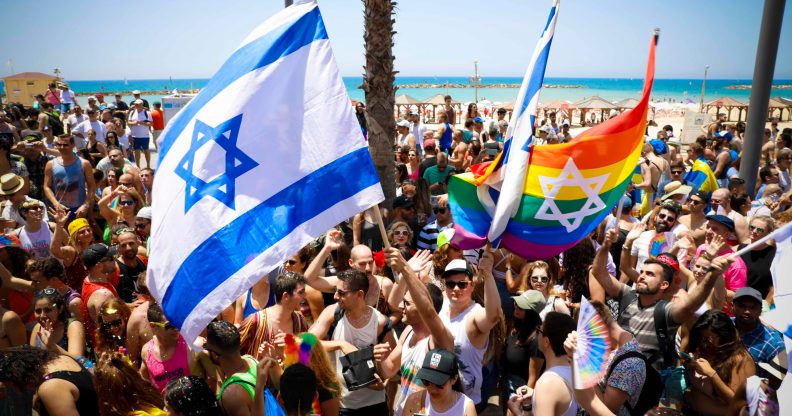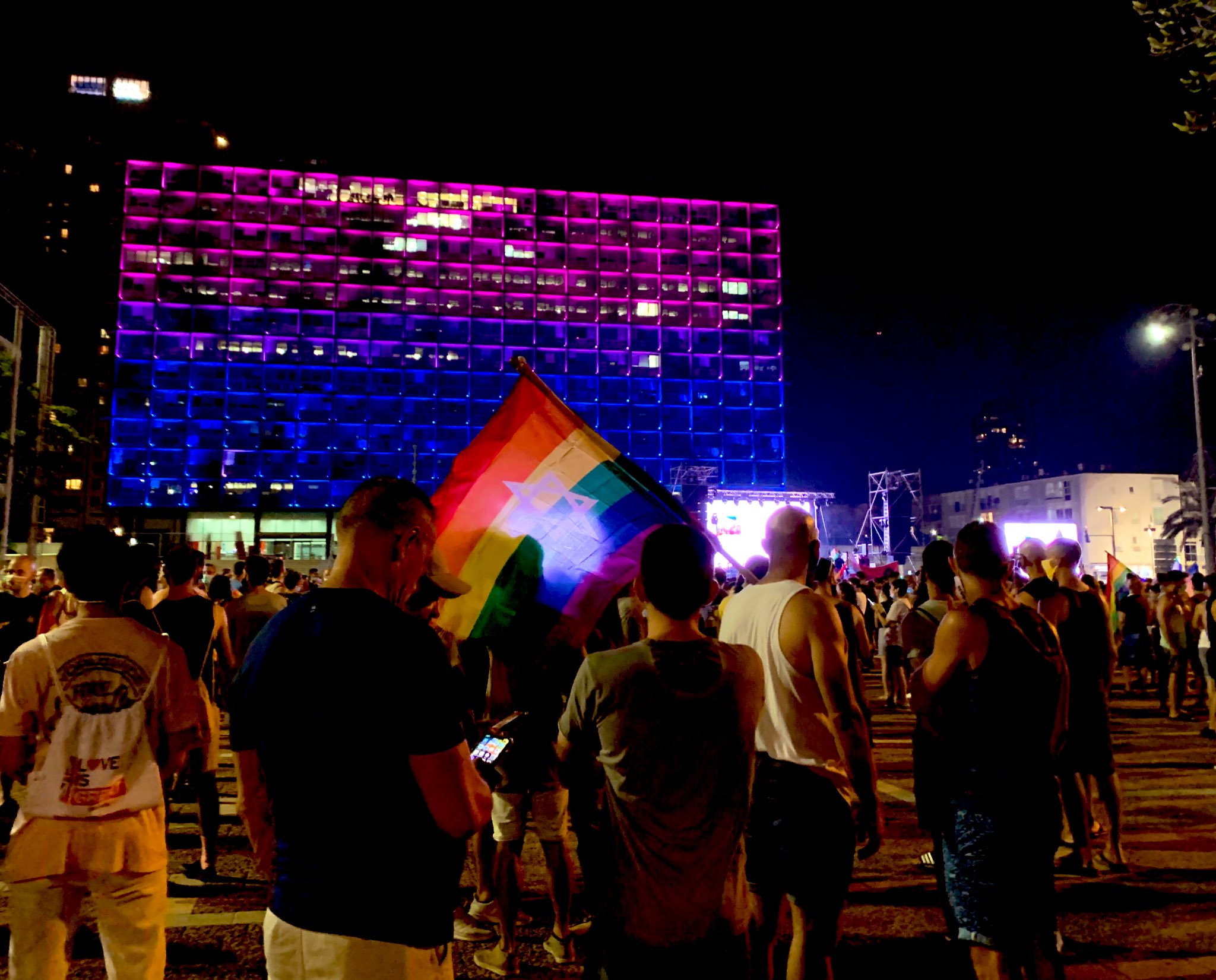Gay Israeli attaché reflects on 41 years of Pride in the Middle East and what lessons still need to be learned today

Tel Aviv Pride, 2017. (Tel Aviv Municipality)
The gay cultural attaché for the Embassy of Israel in London has spoken about the significance of Pride in Israel, and what still needs to be fought for.
On Sunday, June 28, thousands of people in Jerusalem, Tel Aviv, Haifa and Beersheba gathered to demonstrate as traditional Pride celebrations were cancelled because of the coronavirus pandemic.
Barak Ganor, the cultural attaché for the Embassy of Israel in London, told PinkNews that as Pride events are cancelled around the world, “many people will be reflecting in their own homes on the progress that has been achieved and still needs to be made”.
Since the first Pride parade in Israel in 1979, he said: “There is undoubtedly a far greater acceptance of LGBT+ people in all aspects of Israeli society.
“We elected our first openly LGBT+ parliamentarian in 2002 and last year we gained our first openly gay cabinet minister.
“We now have a pioneering new programme that has brought about equal blood donation without restrictions or deferrals, setting us apart from countries across Europe and elsewhere.
“Though we can celebrate these achievements, prejudice still remains. No level of intolerance can ever be acceptable in a progressive, democratic society like Israel or Britain.
“In spite of civil cohabitation long being lawful and equal marriages from overseas recognised, many in my country yearn for more to be done.”
Ganor said: “In our region, Pride events all too often face tremendous opposition, and LGBT+ people frequently endure violence and persecution, backed by extremely oppressive laws.”
At the Sunday rallies in Jerusalem, police said they has arrested 27 far-right protesters as a precaution ahead of the event over “behaviour that could violate the public peace”.

A Pride rally in Tel Aviv on Sunday, June 28.
The Pride rallies in Israel focused on legalising surrogacy for queer men and trans rights.
Transgender equality and surrogacy reform are issues at the forefront for queer Israelis, and were highlighted by yesterday’s rallies.
But Ganor said that things are headed “the right way”.
He said: “It is precisely because Israel is a progressive, democratic society that we can strive for change, unlike so many of our LGBT+ siblings and allies across the Middle East… Israel may continue to stand out from the Middle East for its freedom, tolerance and pluralism, but our public services also championed inclusivity long before many other Western countries.
“In fact, our ministry of foreign affairs employed its first openly gay diplomat in 1994, far ahead of many of our neighbours and allies.”
Ganor described the military as the “best example” of how Israeli society could progress to fully include the LGBT+ community.
“Our military has set itself apart from others and embraced acceptance,” he said, “with LGBT+ personnel rising through the ranks.
“One of the IDF’s most senior generals is openly gay and captain Ofer Erez recently made history as its first openly transgender officer.
“I was a commander during my national service, and two openly LGBT+ personnel served alongside me in my unit.”

Two LGBT+ soldiers hold hands in Israel. (The IDF)
He added: “The military does not discriminate whatsoever… so I feel like we should copy that idea to other sectors.”
Ganor insisted that “Pride is a protest where we demand progress and stand with those who do not have the same freedoms as us,” and said: “Coronavirus may have prevented us from taking to the streets this year, but I know it will not stop our solidarity.
“That is why I hope that next year, even more people will be able to come together and call for change.”

